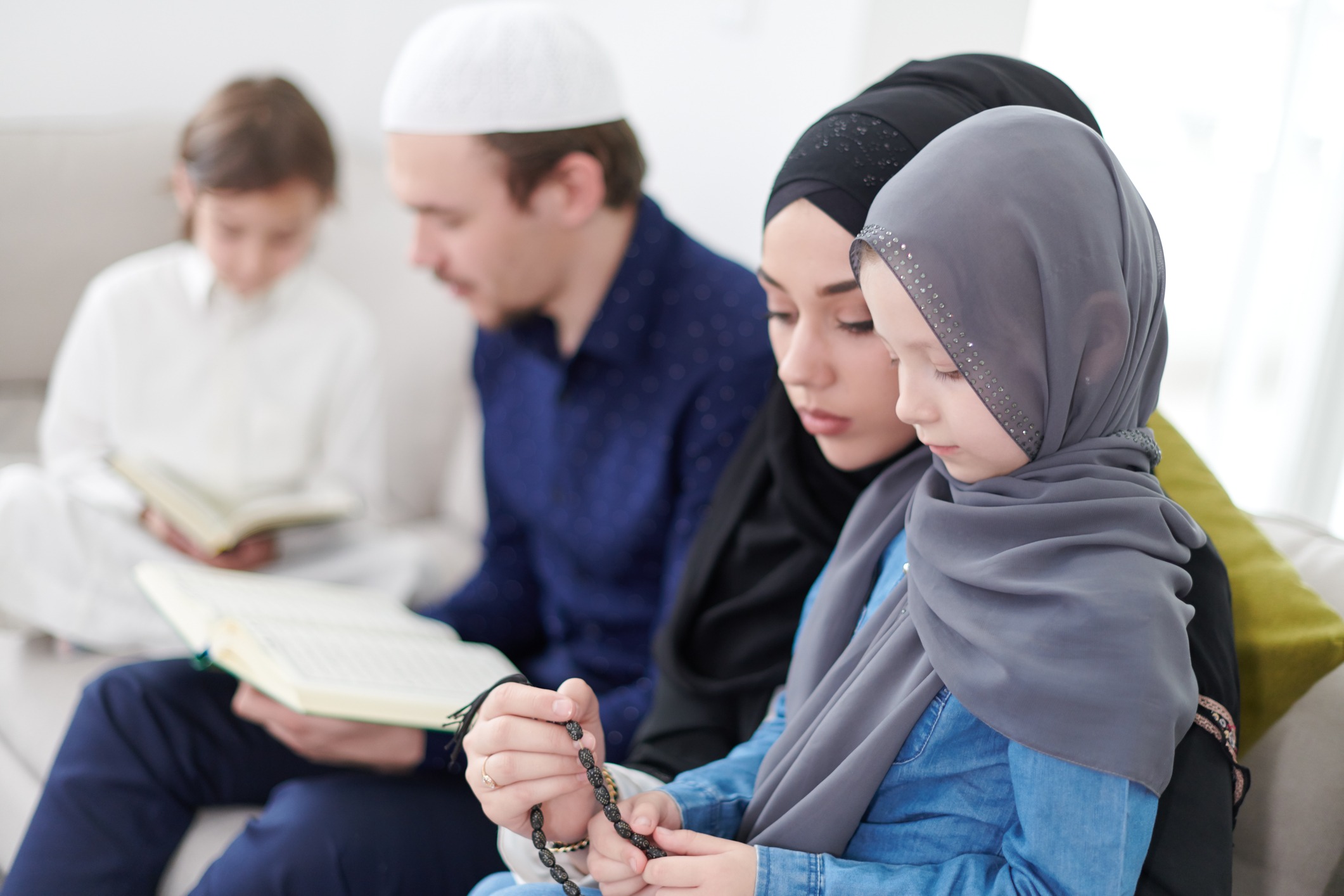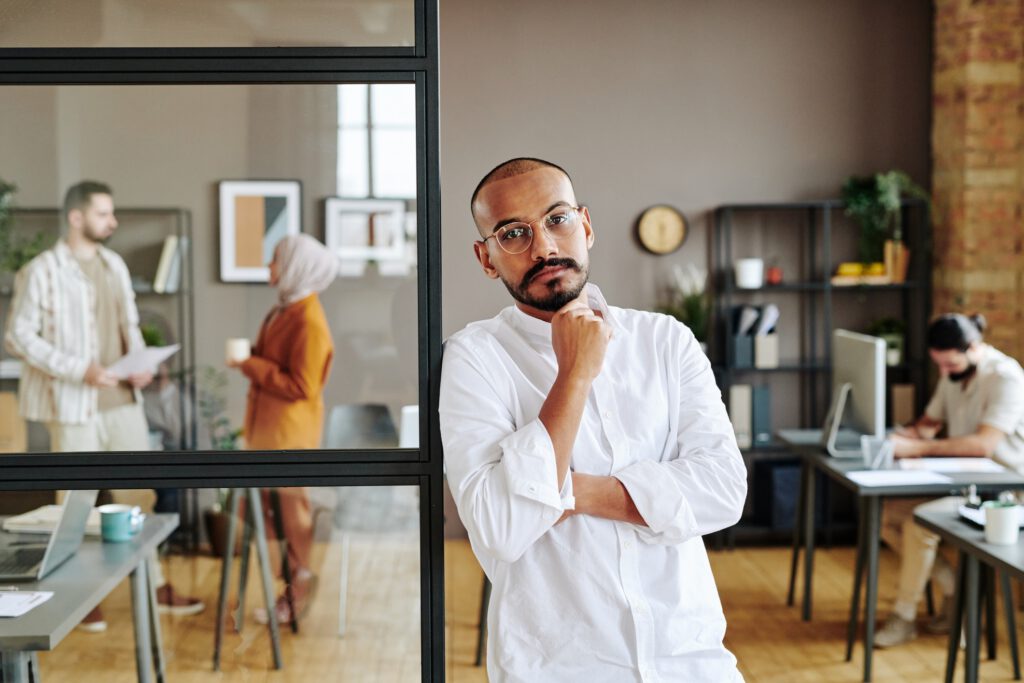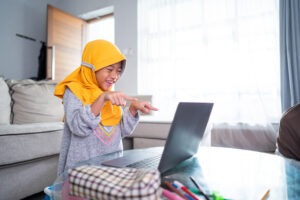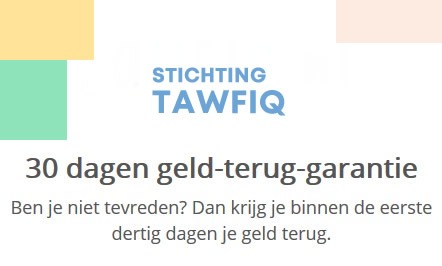-
Islamic knowledge, education and training
- How Muslim parents can help their children deal with Islamophobia.
- How Muslim parents can teach their children to stand up for their faith and identity in a world of increasing Islamophobia.
- The role of the Muslim community in combating Islamophobia and promoting tolerance and respect between different religious groups.
- The challenge for Muslim parents to teach their children how to defend themselves against discrimination based on religious beliefs or ethnicity.
- How the media can play a role in promoting understanding between different cultures, religions and ethnicities in a world where more and more people are confronted with Islamophobia
“Islamic Education: A Powerful Way to Combat Islamophobia!”
Islamic education is an important topic in today's society. It is a way to help children strengthen their identity and teach them to interact respectfully with other cultures and religions. At the same time, the Islamic community worldwide is facing increasing forms of Islamophobia, making it more difficult for parents to raise their children according to the principles of Islam. In this article we will briefly discuss what Islamic education means, why it is so important and what challenges there are when it comes to combating Islamophobia.
How Muslim parents can help their children deal with Islamophobia.
Muslim parents can help their children deal with Islamophobia by teaching them how to defend themselves and their faith. They must teach their children that Islamophobia is a form of discrimination that will not be tolerated. Parents should also provide the right information about Islam so that their children know what the faith entails and why it is so important to them. In addition, parents should ensure that their children receive honest information about other religions, cultures and ethnicities, so that they understand that every culture is unique and valuable. Attention should also be paid to strengthening the child's identity through positive affirmations, such as 'you are good just the way you are' or 'you are strong enough to withstand opponents'. Finally, being with other Muslims rather than staying home alone or living in isolation can provide real support.
How Muslim parents can teach their children to stand up for their faith and identity in a world of increasing Islamophobia.
Muslim parents can teach their children to stand up for their faith and identity in a world of increasing Islamophobia by helping them understand what Islamophobia is and how to deal with it. For example, parents can explain to their children that Islamophobia is actually fear or hatred of Muslims as a group, and that it has nothing to do with the individual person. They should also be encouraged to defend themselves when faced with discrimination or injustice based on their faith.
Parents should also encourage the values of tolerance, respect and love for other cultures in their children. They need to help them understand that every culture is unique, but all have equal value. Parents can use various sources such as book reviews, discussions on religious topics or visits to cultural institutions such as museums or galleries. This can help strengthen your child's identity as he/she learns about other cultures and religions.
Finally, as a parent you must support your child in times when she faces discrimination based on her religious beliefs. Let them know that you are always there for them when they need help, but also let them know that they are strong enough to stand up for themselves when needed.
The role of the Muslim community in combating Islamophobia and promoting tolerance and respect between different religious groups.
The Muslim community plays an important role in combating Islamophobia and promoting tolerance and respect between different religious groups. Muslims can make their voices heard by actively participating in conversations about diversity, inclusion and respect for other religions. They can also express their support for initiatives aimed at strengthening the bond between people of different faiths.
In addition, Muslims can also help their own communities to show more understanding for other religious groups. Refuting conspiracy theories about other religions can create greater understanding of the diversity of beliefs that exist. Educational programs, such as lectures or discussions about religions, can also create greater understanding between people with different beliefs.
Finally, it is important that Muslims continue to engage in dialogue with members of other religious communities in order to make real contact and learn to understand each other better. By dispelling conspiracy theories and enabling open communication, real work can get done
The challenge for Muslim parents to teach their children how to defend themselves against discrimination based on religious beliefs or ethnicity.
Muslim parents face the challenge of teaching their children how to defend themselves against discrimination based on religious beliefs or ethnicity. It is important that children learn how to defend their rights and what to do when faced with discrimination.
To help children learn to deal with discrimination, it is important that parents involve them in conversations about diversity and respect for other cultures. Parents can help their children by engaging in candid discussions about different religious beliefs, ethnicity, and cultural backgrounds. These discussions can promote honesty and create genuine understanding for other people who are different from yourself.
It is also important that parents teach their children how to defend themselves when there is discrimination based on religious beliefs or ethnicity. Parents can provide support in this regard by helping their children formulate statements that can make the situation clear to the person who utters or performs the discriminatory language or actions. In addition, organizations such as local anti-discrimination resources group can also be contacted to obtain advice on what you as a victim can do in such situations.
It is essential that parents teach their children how to defend themselves when there is discrimination based on religious beliefs or ethnicity, as this will help them to be stronger in the face of such unjust behavior
How the media can play a role in promoting understanding between different cultures, religions and ethnicities in a world where more and more people are confronted with Islamophobia
The media can play a major role in promoting understanding between different cultures, religions and ethnicities in a world where more and more people are confronted with Islamophobia. By using the media to tell positive stories about Muslims, we can help counter the stereotypes often associated with Islamophobia. The media can also disseminate useful information about Islamic culture and religious traditions, which helps to promote understanding and respect for other cultures.
In addition, journalistic programs or documentaries can be made that focus on strengthening intercultural dialogue through interviews with members from different communities. Such programs can also really listen to what people from different backgrounds have to say about their experience with discrimination or other forms of inequality. By making these types of initiatives accessible to every age group, there can be greater understanding between various cultures and ethnicities in our global context. Islamic education is an important part of Islamic culture and it helps children to strengthen their identity. It also provides a framework for learning about respect, tolerance and forbearance. While there are many positive aspects to this upbringing, Muslims often face Islamophobia. This can lead to fear, shame and insecurity in Muslim children. Therefore, parents should help their children understand that they can be proud of their religious identity and that they do not have to be afraid of other cultures or religions.







